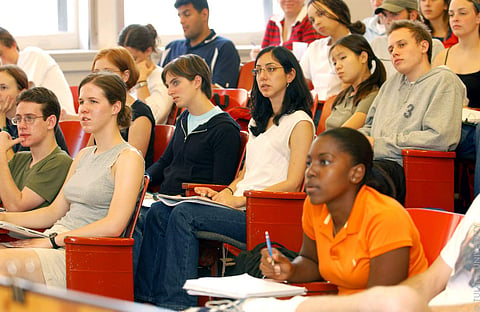

After getting accepted to a college or university in the United States, when can I apply
for a F1 or M1 student visa?
The Consulate accepts applications for student visas starting 120 days before the applicant's program start date listed on the I-20. The I-20 is the form provided to you by the educational institution in the USA where you have been accepted. We encourage applicants to apply as early as possible to allow for enough time for visa processing.
Can my parents visit me when I am studying in the United States?
Your parents will need to apply for a B1/B2 visa to come visit you. They can learn more about applying for this visa by visiting our website at www.ustraveldocs.com/in/
What factors does a consular officer consider in determining if I am qualified for a
student visa?
To qualify for a student visa, the applicant must demonstrate that they meet the following four qualifications:
You must be prepared to discuss each of these qualifications with the consular officer during your interview. The most important thing for you to do is to tell the truth during your interview. Lying during a visa interview can result in a permanent ineligibility to travel to the United States.
What documents do I need to bring to an interview?
At the time of the interview, the only required documents are the I-20 issued by your school and the SEVIS fee receipt which you can pay at www.fmjfee.com. Visa adjudication is an interview-based process; documents beyond the I20 and SEVIS receipt are generally not required for a student visa application. Most of the interview comes down to the discussion between the officer and the applicant: try your best to tell your story honestly. Why do you want to study at this school? How did you find out about it? How will you pay for it? These important aspects are best covered in discussion, and not in documents. However, applicants may bring documents they believe might help an officer better understand their story.
If you have questions about studying in the United States, please send them to ChennaiStudyinAmerica@state.gov. We will be answering the questions we receive in a series of follow-up articles in this section.
